HAZARDS TO PARROTS
Living with a parrot provides many unique environmental challenges. Common toxins in our home can kill a parrot! It’s critical to understand how to keep your feathered family safe.

Cats & Dogs
Cats and dogs kill many companion parrots every year. You should never, ever leave your parrot unattended with a cat or dog. Parrots are prey, cats and dogs are predators. Even the most docile dog can kill a parrot. Never assume that “My dog is OK” because chances are, your dog is not OK and the parrot pays for this with its life.
All cats carry a bacteria in their mouth called Pasteurella. These bacteria are usually deadly to parrots. Even a small nick from a tooth or a claw can cause death. The bird will preen it’s feathers and ingest the bacteria from the cat saliva on it’s feathers. The bird will now die a painful death several days later.
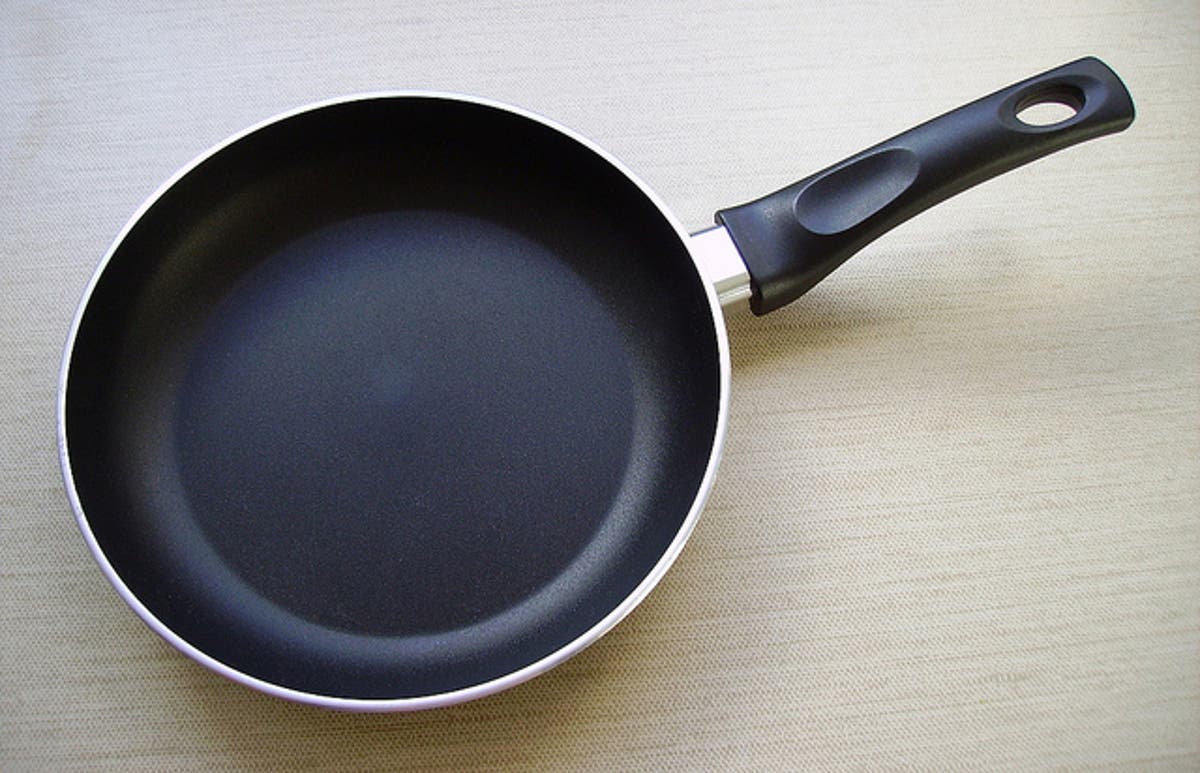
Kitchen Safety
This is a very large and important topic. There are so many toxins in your kitchen. From avocado to cookware, there are many things that should never be in a home with parrots. If the appliance generates heat, you should be highly suspicious!! The following is some of the most common items in a kitchen that can potentially kill a bird
- Non stick cookware ( Containing PTFE or PFOE)
- Self cleaning ovens
- Oven cooking bags
- Air fryers
- Open pots of boiling water or food
- Hot stove tops
- New ovens
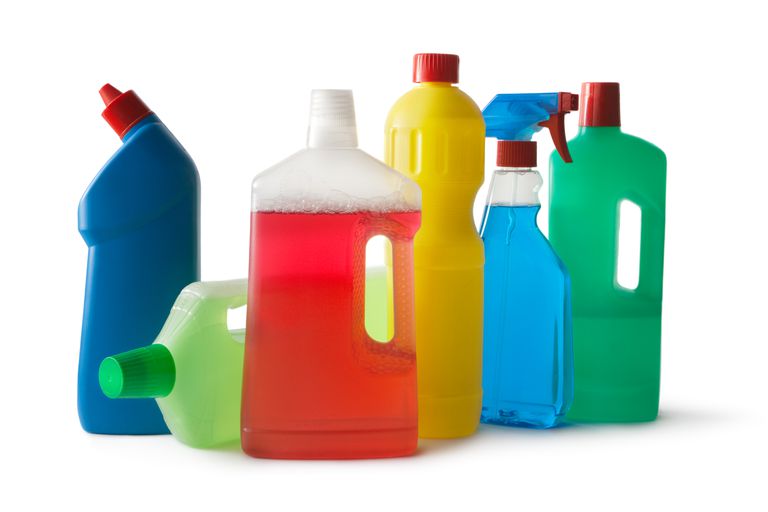
Household Products
As a parrot guardian, you also become a guardian of the environment as many of the products you might have previously used to clean your home are toxic to parrots. Natural cleaners are the best option for your parrot and the environment. Some common toxic substances in your home are:
- Scented candles
- Wax burners
- Air fresheners, plug in products
- Harsh chemical based cleaners
- Nail polish or nail polish remover
- Hair spray or any aerosol product
- Small appliances like hair dryers, coffee makers (research those that don’t contain PTFE)
- Cigarette or cannabis smoke
- Drowning – open toilets, full bathtubs, sinks, open fish tanks, washer
- Some space heaters
- Some houseplants
Research and question every new product you bring into your home
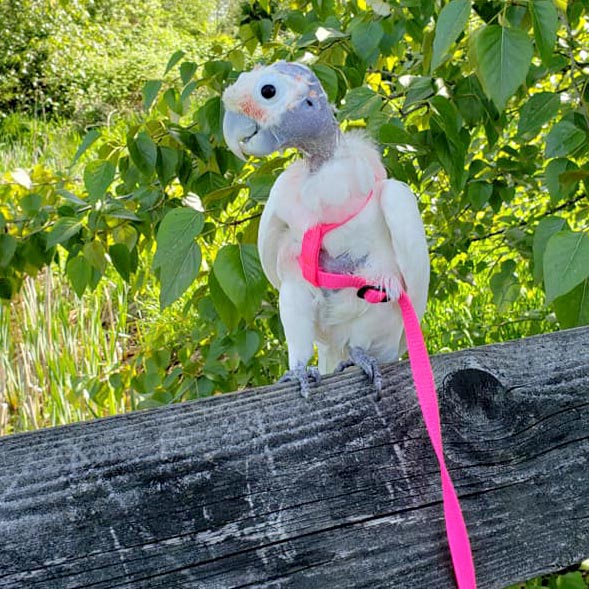
The Great Outdoors
Every year we are overwhelmed with calls for help for birds that have escaped outside. While we have no hard statistics, it’s a guess that less than 20% of escaped birds find their way back home.
Clipped birds can and do fly!
They do so very well in fact! It’s a common thought that a clipped bird is safe outside. This is absolutely not the case!
If you are opening windows or doors in the warm weather, make sure your bird is either in its cage or you have screens on all windows.
If you want to take your bird outside, do so only in a travel carrier or cage. Harness training your bird is a fantastic way to provide outdoor fun and safety. Harnessed birds can go almost anywhere that you can.
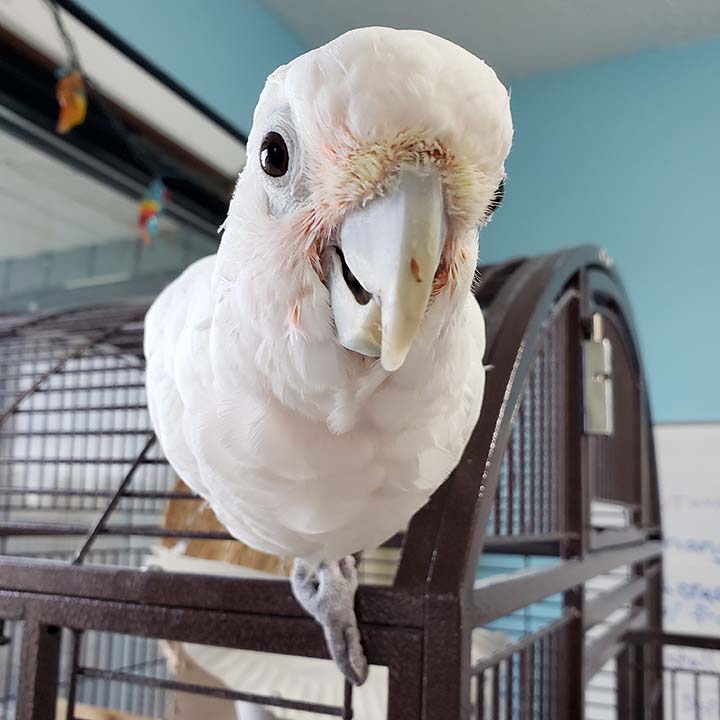
Metal Toxicity
Lead, Zinc and Copper are toxic to parrots. They are often undiagnosed causes of illness and death. Metals are everywhere in our environments and are an often overlooked source of toxicity in pet birds. Metals can be found in paint, linoleum, soldering, wire, zippers, twist ties and many other objects on which birds love to chew. Even some older bird toys, especially the clappers on metal bells, have been found to contain lead. Birds who may chip away over time at a lead-painted windowsill, lick a metal bell toy, nibble on the soldering of a stained glass Tiffany lamp or chew on a metal zipper are constantly ingesting heavy metals and can potentially become intoxicated.
When ingested in large enough quantities, these metals can damage nerves and cause vomiting, maldigestion, neurologic signs, such as imbalance and clenched toes and even seizures. Most cases of heavy metal toxicity in birds are treatable if they are diagnosed early enough before permanent nerve damage has occurred. However, these metals are not routinely tested for in birds unless the owner indicates that his or her bird has been exposed. So, if you think your bird may have ingested any of these substances, speak up to your veterinarian immediately, as it could be the difference between life and death.
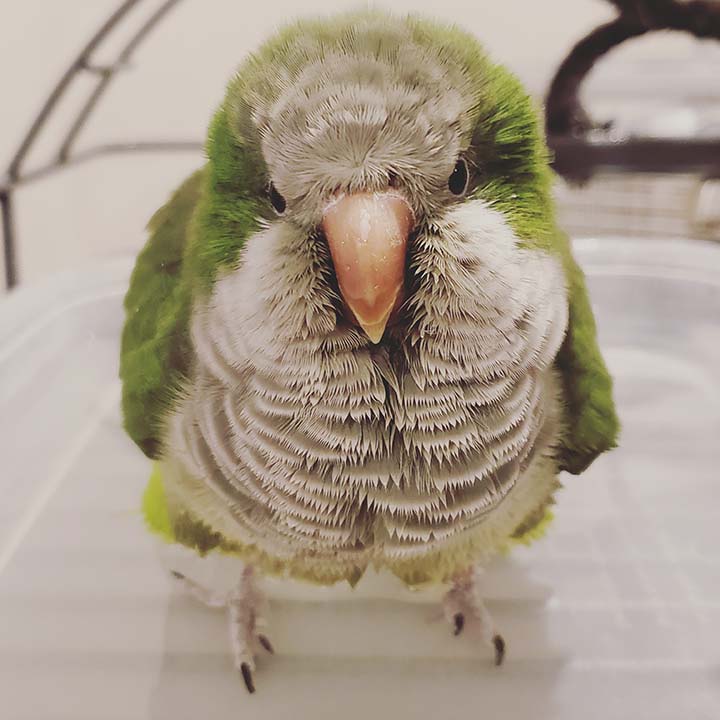
Air Quality
Parrots are extremely sensitive to the air quality in their environment. Good air quality is critical to the well being of your parrot. If you have parrots in your home, you should invest in quality air purifiers. Rabbit Air, IQ Air and Austin Air are just a few. Air purifiers however will not eliminate the risk and hazard from many household products.
Living with parrots means changing how you live in your home. Using natural cleaning products like vinegar instead of harsh chemical based cleaners. Changing your cookware to stainless steel. Not using scented candles or plug in diffusers. You may just find that living with a parrot makes your lifestyle much healthier!
Air quality toxins include:
- Cigarette & cannabis smoke
- Smoke from forest or wild fires
- Household toxins such as candles, incense burners
- New carpeting
- Aerosol products such as hair spray, air freshener
- Paint
- Non stick products that contain PTFE or PFOA such a frying pans, waffle makers, cooking bags, irons, ironing board covers

